Sustainability in the Café Blog Series

A couple years ago, when our café at Seven Corners was just an idea, we knew from the beginning that we wanted to set out to build a café that was a bit different from the rest. We weren’t certain at the start what exactly this would mean, and we had many internal discussions about how to manifest our vision and values in this new café. By the time we were ready to open the Seven Corners Café, we had a clearer picture of what that vision would be, and we also had a couple other cafés under our belt where we’d been testing ideas, learning and growing. We set out with an ambitious sustainability initiative to become a Carbon Neutral and Zero Waste café. These two goals are related but distinct, and eventually we will go further in depth on the steps we’re taking to become carbon neutral. In this post we’ll focus on what it means for us to be Zero Waste.
Defining Zero Waste

So, what exactly is Zero Waste? It’s a bit of a misnomer, simply because ‘absolute zero’ when it comes to waste is extremely difficult. Even the savviest people with regard to reduce, reuse, recycle have great difficulty avoiding waste completely. So Zero Waste is never really one hundred percent achieved, but the goal itself is to reconceptualize the concepts of ‘use’ and ‘waste.’ It is an attempt to look at the full life cycle of products and materials to imagine them in a way that they really are not wasted. A product created should be used again and again, and if it has a limited life, should be able to be composted or recycled instead of going to the landfill.
You’ve probably heard the phrase ‘reduce, reuse, recycle’ - and they are great rules of thumb for limiting waste. But zero waste takes this a few steps further, and there are actually 5 R’s of Zero Waste: Refuse, Reduce, Reuse, Recycle, and Rot. Starting with ‘refuse’ means refusing to purchase or consume products that include waste. It means pre-screening and selecting products for how they are packaged, or even bringing your own way of durable packaging. You surely know the middle three: Reduce, to use less; Reuse, to use again; and Recycle, to send items to a facility to be broken down and turned into new material. The final R, Rot, means sending items to the compost, if they can be composted, to feed their nutritional value back into the earth and fuel new life. The graphic is visualized as an upside-down pyramid because, hopefully, the amount of material left decreases at every step.
Zero waste is an ambitious goal—especially for a business operating in a space riddled with so much waste like the coffee industry. Waste often just seems like second nature to coffee shops—-a necessary evil to operate given the nature of the business. Taking a zero waste approach in a café means questioning long-held assumptions and making some sacrifices in convenience and perhaps in traditional ideas of ‘customer service.’ It’s about refusing to offer things that are inherently wasteful, and re-training both baristas and customers to consider their choices in the cafe more consciously. It can often involve tough conversations, and refusing to offer something for free or altogether because of the waste involved in offering it. It is not about shaming, but about educating and encouraging deeper consideration of behaviors and choices.
How We’re Going Zero Waste in the Café
There are a few key ways that we are tackling Zero Waste in our Seven Corners Café. We’ll start with the biggest one, and probably the most difficult to swallow:
1. The To-Go Cup Upcharge
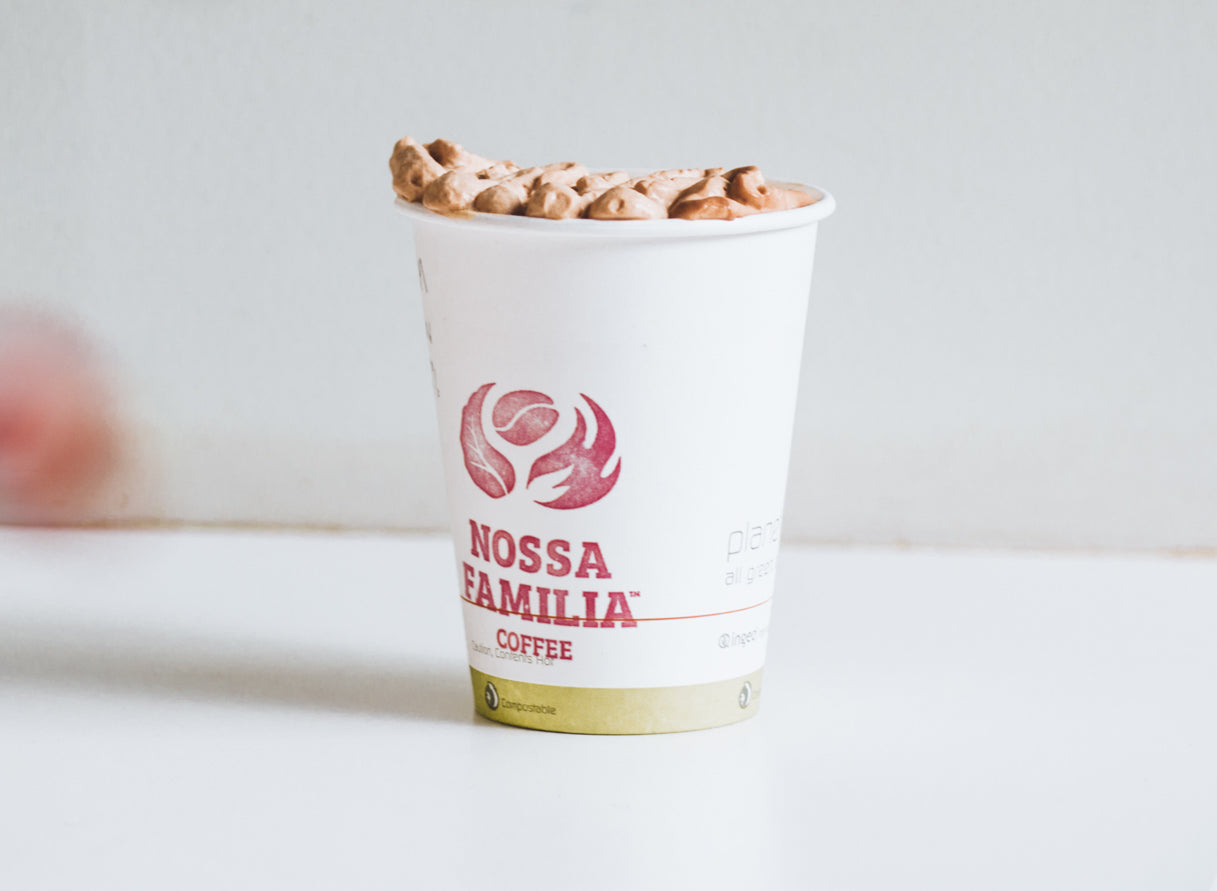
The biggest step we’ve taken to reduce waste is to implement an additional 25-cent charge for all drink orders that are ‘to-go’ and use a disposable paper cup. Our prices listed on the menu are the ‘for-here’ price, which would use the durable cup options we have available to customers for use in the café. We also offer a 25-cent discount for customers who bring their own cup, and we will gladly prepare any drink into a customer’s own cup.
We were honestly a bit scared to take this big stand and step in the new café. So scared that it almost didn’t happen. How would our customers respond? Would they hate us, revolt, yell at our baristas, and choose to go to another coffee shop? We’ve always been about top-notch customer service, so this was a nerve-wracking move: to tell customers they needed to pay for something that everywhere else is free.
Overall, the response from customers has been extremely positive, and early results of the behavior change we’ve seen are pretty stunning. We’ll dive into these results in our next blog post, The Zero Waste Café, Part Two: Initial Results of the To-Go Cup Upcharge at the Seven Corners Café.
2. Close Vendor Relationships Limit Waste
We have asked our local vendors to join us in the Zero Waste goal, and chosen suppliers and vendors particularly for their willingness to be a part of it. For example, Pearl Bakery is our pastry partner, and they deliver our daily pastry order in reusable plastic tubs that get washed. Our local artisan chocolate supplier, Creo Chocolate, makes all the syrup for our mochas, which come in reusable plastic squeeze bottles through a bottle deposit system. One troubling trend in the world of kegs and taps is the use of single-use plastic kegs; however both our iced coffee and Oregonic Tonic kombucha come in reusable steel kegs. Rawdacious provides their raw vegan cheesecakes in reusable tupperware. These are just a few examples of the many vendors who have come along on our Zero Waste journey.
3. Reducing Wasteful Options Available

Our condiment bar is a bit more limited than one you might find at another cafe. We have no straws, sleeves, lids or sugar packets on the condiment bar. Instead, we make our own honey and simple syrups and refill their glass containers. Sugar is from a shaker. Lids and sleeves are part of our to-go upcharge initiative, so you need to pay for and request them to limit their use. Pulling straws and sleeves behind the counter to have them on request is one change that we’ve made at all of our cafés to reduce needless waste and ensure that customers are thinking about their decisions before simply grabbing something just because it’s readily available.
Need to get that bagel to-go? You won’t find any small plastic containers for cream cheese here. Instead, you’ll get the bagel on a plate with a ceramic ramekin of cream cheese and reusable knife that you can use to spread the cream cheese before you go. We don’t have any disposable dishware, if you need some - you can purchase a set of reusable bamboo cutlery from Bambu.
4. Embracing the Reusable Straw

We have taken ‘ditch the straw’ to a whole different level here! Given its home in the Seven Corners Collaborative building, a hub for several nonprofits working in the disability services space, our cafe is situated right at the intersection of accessibility and sustainability. For this reason, and because straws have been such a hot topic lately with recent campaigns to ban them altogether, we knew that straws would be a concern here.
Many people experiencing disability require a straw to drink their beverages, so we wanted to avoid the ableism that can seep into the discussion of straw bans or ditching disposables. We have lots of ways for even those who need a straw due to a disability to participate in our zero waste environmental initiative. We have plenty of straw options in the cafe, but none of them are disposable. We have large bendy silicon straws, steel straws with soft rubber tips, bamboo straws, and rigid plastic straws. There’s a straw here for everyone!
5. Promoting Reusable “Packaging”
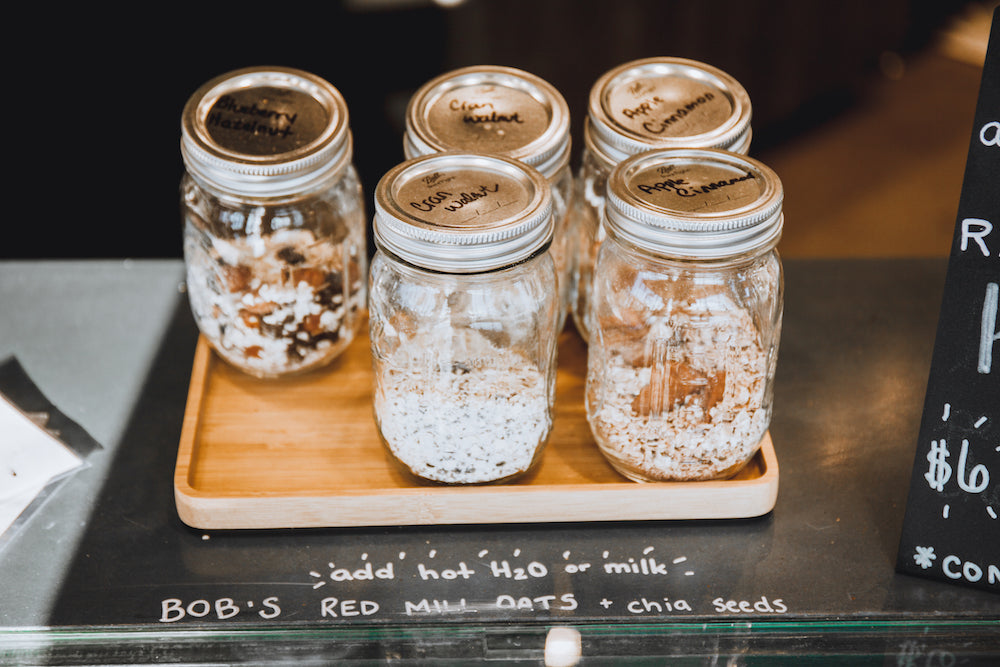
Part of Zero Waste means rethinking what is considered ‘packaging.’ One way of doing this is offering items for consumption in reusable/durable containers. For example, one of our favorite new things on offer in this cafe are our all-natural fruit & nut oatmeal jars. We start with Bob’s Red Mill oats and then we mix in dried fruit and nuts, all purchased in bulk.
As we add more food options in this cafe, we’ll explore more creative ways to limit disposable packaging. We also can offer coffee beans in bulk to customers who bring their own container for them, with a small discount to boot.
What Next for Zero Waste in the Café?
As mentioned previously, Zero Waste is a journey with a difficult-to-reach endpoint. We are always looking for ways to improve. Here are some upcoming ideas and initiatives we’ll be working on in the area of zero waste in the café.
Adding additional food menu items without the extra waste.
Expanding and promoting our bulk coffee beans program, and encouraging customers to bring their own.
Sending our compostable cups to the compost.
Continuing to work with suppliers and vendors to limit the packaging and waste coming into the café.
Continuing to promote our reusable cup options and bringing your own mug, and overall reducing our disposable cup usage.
Potentially expanding the to-go cup pricing structure to our other cafés - stay tuned!
Read More:
“The Zero Waste Café, Part Two: Initial Results of the To-Go Cup Upcharge at the Seven Corners Café” (coming soon in our Sustainability in the Café Blog Series!)
“Nossa Familia Gets Personal With Progressive New Portland Cafe” via Daily Coffee News - October 1, 2018
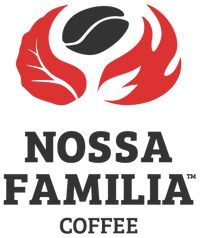

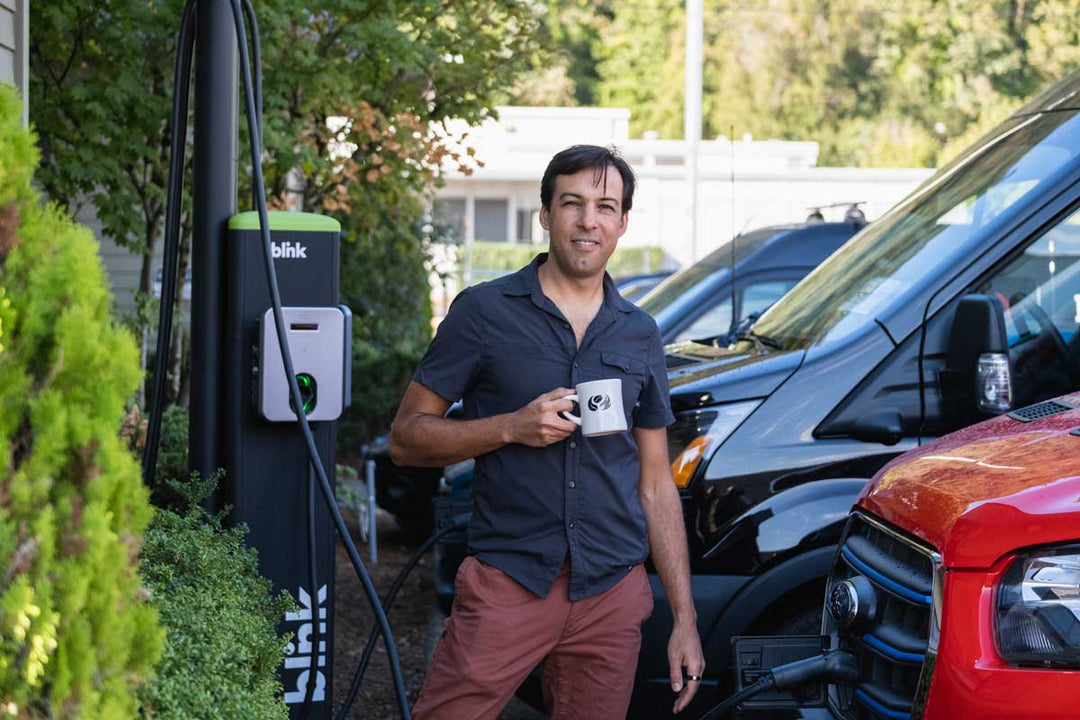
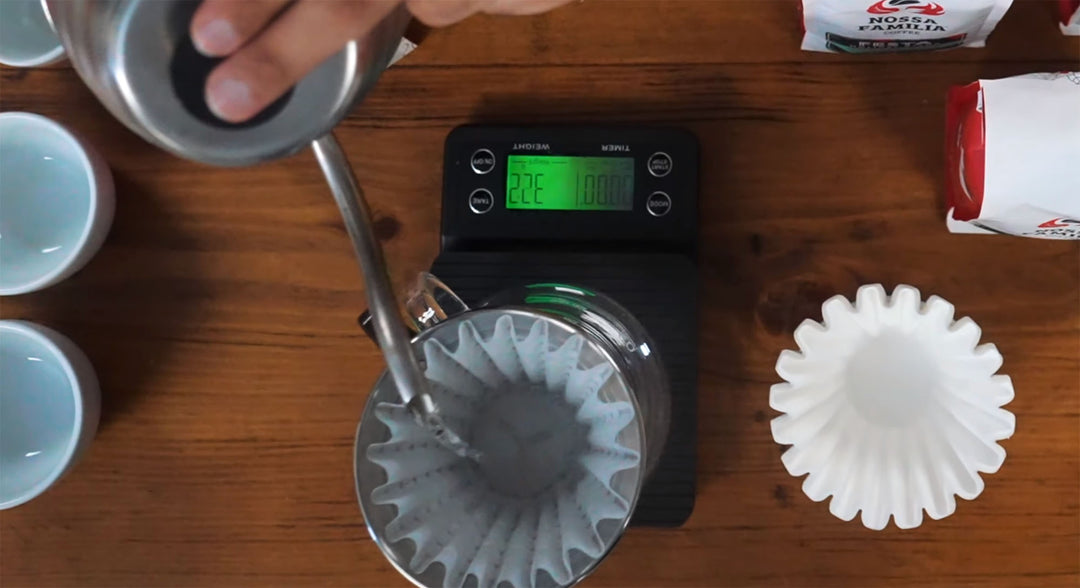
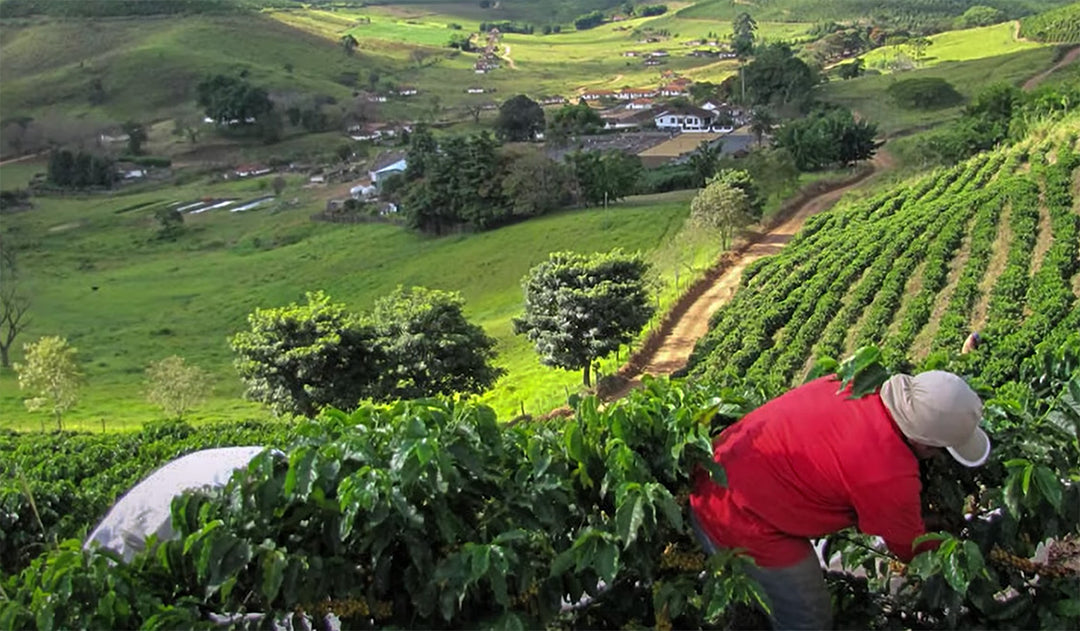
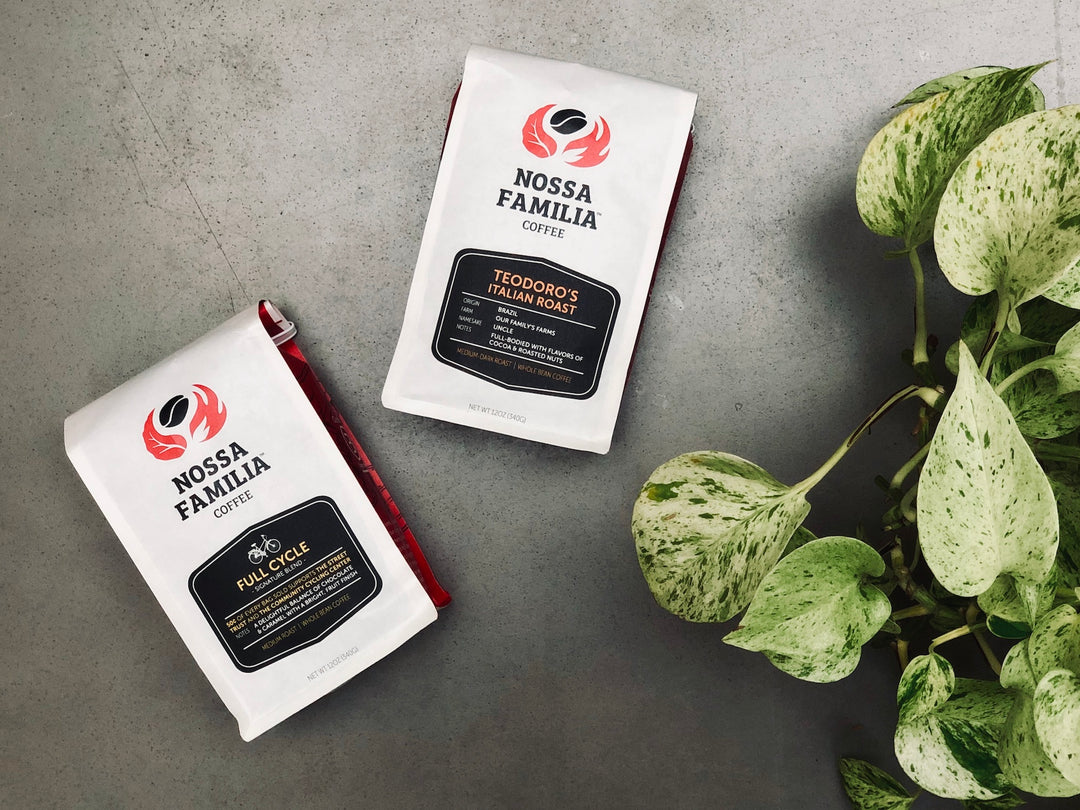
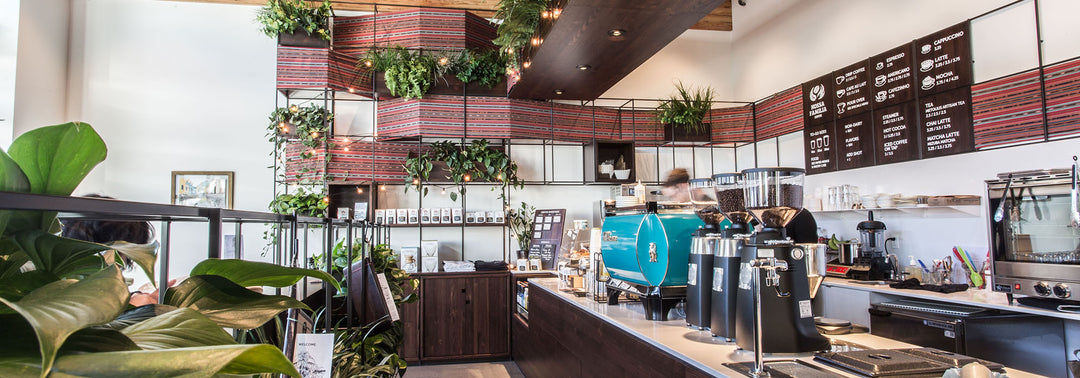
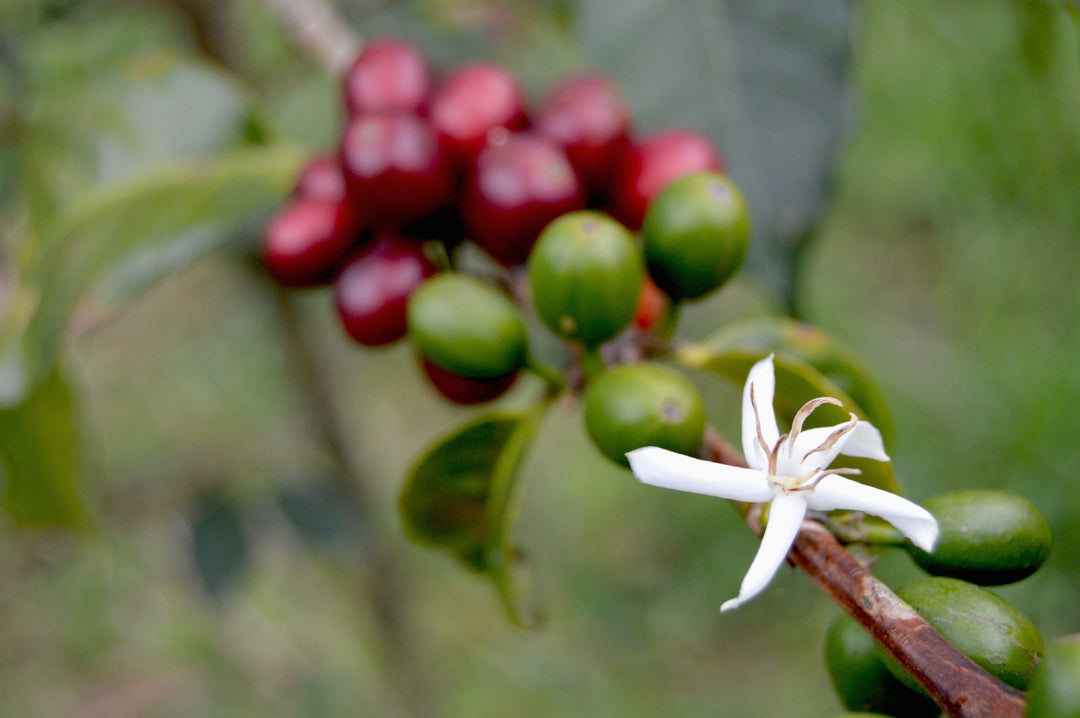

Love the innovative zero waste concept! It’s great to see coffee culture embracing sustainability. Can’t wait for part two!
Leave a comment